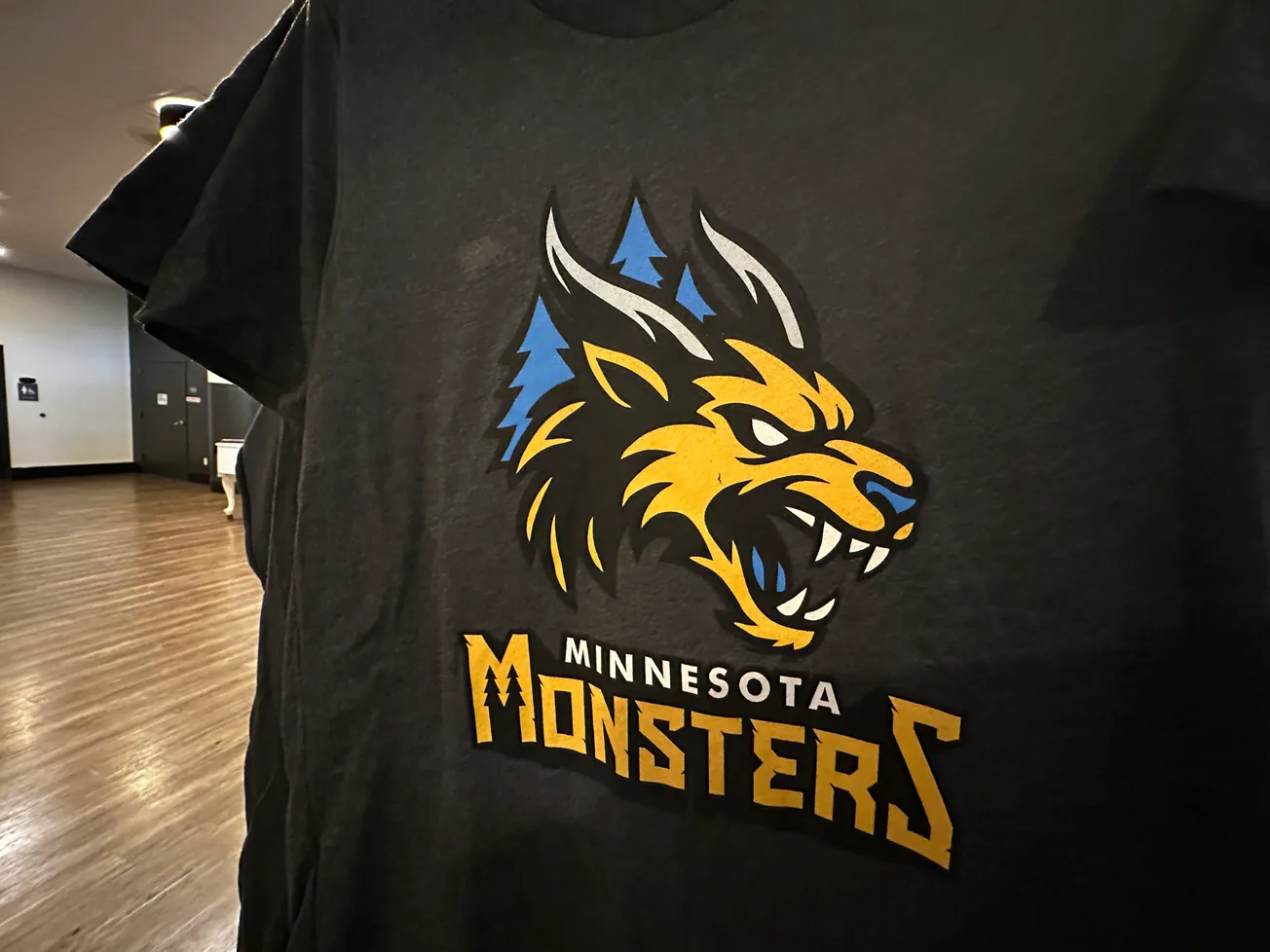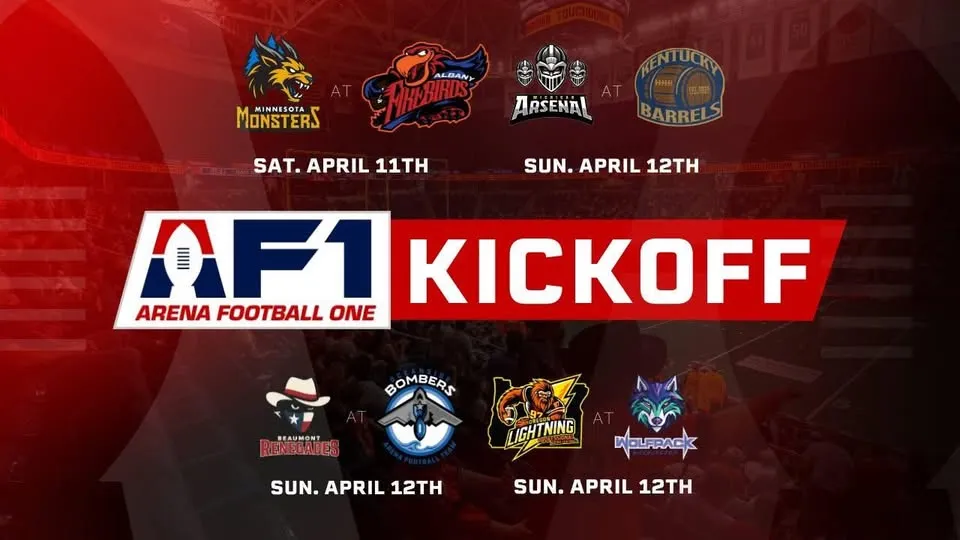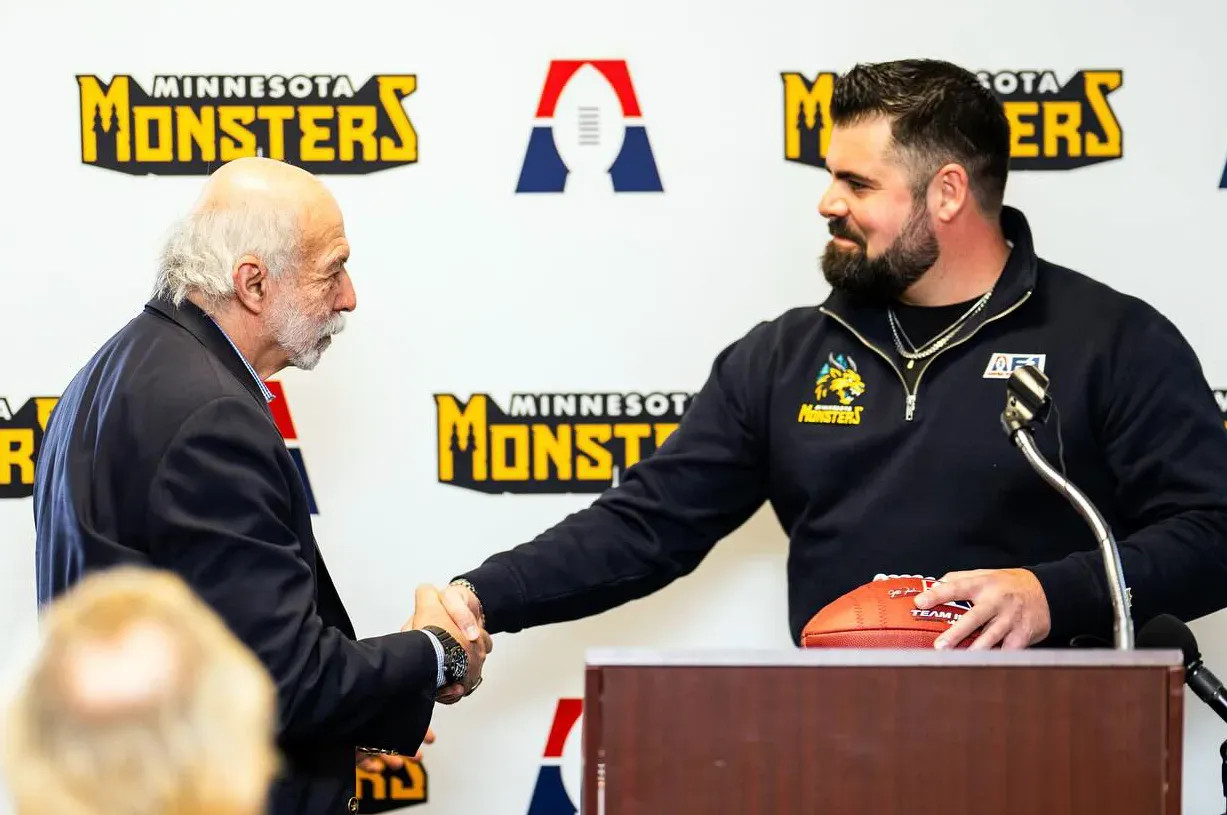
Howie's column is powered by Lyric Kitchen · Bar
The Minnesota Monsters’ decision to join Arena Football One in 2026 is more than a league change. It represents a defining moment for Duluth sports, one that places the city and its fans on a national stage.
For two seasons, the Monsters — known until recently as the Duluth Harbor Monsters — dominated The Arena League, winning back-to-back championships in 2024 and 2025. Those titles gave Duluth its first taste of professional football success, albeit in a fledgling circuit built around six- and seven-man versions of the indoor game.
Now, the Monsters will compete in an entirely different environment. Arena Football One, headquartered in Nashville and led by commissioner Jeff Fisher, is the most ambitious revival of arena football in nearly two decades. With franchises in established sports markets such as Albany, Nashville and Oregon, and with national exposure through Vice TV and digital streaming, AF1 has the infrastructure and ambition to become the new standard for the sport.
The transition will be noticeable from the first snap. The Arena League played with smaller rosters and stripped-down rules. AF1 restores the classic eight-on-eight format that defined the original Arena Football League: offensive and defensive lines in the trenches, kickers on the roster, and full-scale special-teams play. The field remains the same — 50 yards long, surrounded by walls — but the product is faster, more physical and more complete.
For the Monsters’ players, this means a more demanding game. Talented receivers who once doubled as defensive backs in TAL may no longer be asked to play both ways. Linemen will need to anchor both sides of the ball. Coaches must build schemes with a wider range of tactics. The style will feel closer to professional outdoor football, condensed into an indoor arena.
For fans, this means more strategy and balance, fewer gimmicks, and games that better resemble the traditional sport. The appeal of arena football has always been its speed and scoring, but AF1 offers that while preserving football’s structure.
Duluth will also find itself on a bigger map. In TAL, the Monsters’ opponents were largely other start-up franchises in smaller markets. In AF1, they will face championship-caliber clubs like the Albany Firebirds, who won the inaugural Arena Crown in 2025 before crowds of more than 10,000.
Those matchups carry weight. They will test the Monsters against deeper rosters and stronger organizations, while giving Duluth fans visiting teams with name recognition and tradition. National television and streaming deals mean that games in the DECC will not only reach a local audience but also households across the country.
The rebrand from Duluth Harbor Monsters to Minnesota Monsters reflects both necessity and strategy. TAL owns the Harbor Monsters name, forcing the change. But the new statewide branding also signals ambition — an effort to draw fans, sponsors and recognition from beyond Duluth.
That broader vision will be tested quickly. AF1 is a more expensive operation: larger travel budgets, more professionalized rosters, and higher operating costs. To succeed, the Monsters will need to build partnerships, grow ticket sales and cultivate a following beyond their initial base.
The transition does not come without controversy. TAL officials have argued that franchises are bound to their league by contract, raising the possibility of disputes or even legal battles. Questions also remain about the coaching staff, as TAL suspended head coach Tony O’Neil late last season.
On the field, the Monsters will have to adjust a roster built for seven-man football to the eight-on-eight AF1 format. That likely means new signings, particularly in the trenches and on special teams. A team that was dominant in TAL will need to prove it can adapt to a league with more established standards.
For Duluth, this is an opportunity. Arena Football One is not guaranteed success — no arena league has sustained long-term stability in recent decades — but it has assembled leadership, markets and media partnerships that give it a stronger foundation than most.
The Monsters’ place in AF1 provides Duluth with a team competing at the highest level currently available in indoor football. It offers players a chance to prove themselves in a national setting, and it offers fans a more polished, credible product.
It also signals that Duluth, often underestimated as a professional sports market, can compete for attention and legitimacy. The Monsters’ championships in TAL were the beginning. Their move to AF1 is the test.
The Minnesota Monsters step into Arena Football One not as underdogs but as proven winners eager to prove themselves again. The league is bigger, faster, and more demanding than what came before. The question is whether Duluth’s team, and its fans, can rise with it.
For now, optimism is warranted. The Monsters have a loyal base, a downtown arena ready for bigger crowds, and momentum built on two championships. What happens next will determine whether this franchise becomes a fixture in Duluth’s sports identity — or just another short chapter in the long, unpredictable story of arena football.





